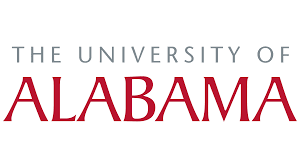
Description
The purpose of the Pullias Center’s Faculty, Academic Careers and Environments (FACE) project is to understand who faculty are, what their academic careers look like, and how the environments in which they work shape their ability to thrive as instructors, researchers and/or public scholars in the community.
What is the FACE Project?
Who is the Academic Workforce?
Who makes up the academic workforce in the U.S.? This may seem like a simplistic question, but the reality is that, on a national level, we don’t really know — and the FACE project will help us widen our knowledge of this important group.
Learn More
There is a wide range of roles, responsibilities, and day-to-day working conditions among the academic personnel. This project aims to capture the experiences of the academic workforce broadly, including the following:
- Part-time and full-time faculty;
- Tenure-line and contingent faculty (who are often called non-tenure track faculty);
- Faculty across disciplines;
- Faculty employed in the two-year and four-year sectors (and those employed in both sectors);
- Faculty whose primary responsibility is as an instructor, a research scientist, and/or as a public service or outreach educator, as well as those whose responsibilities include multiple roles
Why Now?
Over the past several decades, there has been a shift to increased contingency among faculty positions (and a simultaneous decrease in the number of tenure-line faculty employed) in higher education in the United States. Another shift has been the goal of increasing representation of faculty with minoritized identities. And for many faculty, the recent pandemic changed both how and where they work.
Until 2004, nationally representative data on faculty was collected by the National Center for Education Statistics (NCES). The National Study of Postsecondary Faculty (NSOPF) provided critical data on faculty’s backgrounds, professional roles, workloads, compensation, attitudes, and career plans. NSOPF was also the only nationally representative source of data on faculty’s disciplinary affiliations.
How We'll Do It
To address the need for this data, the FACE project team will design and test the various processes and instruments needed to better understand many of these topics, as well as topics that have emerged since 2004 as important for faculty satisfaction, retention, effectiveness, and engagement, including sense of belonging, sense of mattering, and the institutional climate for diversity, equity and inclusion.
Learn More
In order to comprehensively address key elements of faculty characteristics, academic careers, and environments that shape the working conditions faculty experience, FACE will collect data from both institutions and individual faculty. Participating institutions will provide information about the demographic and employment characteristics of their faculty as well as characteristics of the institutional environment. FACE will also survey faculty to learn more about their individual experiences, behaviors, and perceptions.
The work we do now will serve as the basis for data collection at the national level. It will also provide the data needed to inform institutional, state, and federal policies that allow faculty to thrive.
FACE is funded through a $1.5 million grant from the National Science Foundation. RTI International will provide development and data collection support for the project.
Project Update: Fall 2023
We collected pilot data between April and July, 2023. Currently, we are in the process of cleaning and analyzing data from the pilot project. Our main goals for 2023-2024 are to publish our technical manual and conceptual framework, complete an evaluation of our process and instruments, and collect feedback from participants. We are hoping to launch data collection at scale in Fall, 2025.

Project News
Project Team
Adrianna Kezar
Principal Investigator
Professor, USC
KC Culver
Co-PI, Assistant Professor
University of Alabama
Caren Arbeit
Co-PI, Research Analyst
RTI International
Emily Rose Koren
Postdoctoral Scholar, USC
John Curtis
Consultant
Cheng Hua
Research Assistant
University of Alabama
Kellen Jones
Research Assistant
University of Alabama
Partners

RTI International
RTI International is an independent, nonprofit research institute dedicated to improving the human condition. Their vision is to address the world’s most critical problems with science-based solutions in pursuit of a better future.

The University of Alabama
The University of Alabama advances the intellectual and social condition of the people of the state, the nation and the world through the creation, translation and dissemination of knowledge with an emphasis on quality programs in the areas of teaching, research and service.
Funder

The “Understanding Faculty, Academic Careers, and Environments in Service of Equity (FACE)” project is funded from the National Science Foundation’s EHR Core Research program within the Division of Human Resource Development of the National Science Foundation, under Grant No. NSF 2200769. The content, statements, and recommendations expressed on this website are those of the FACE Project and do not necessarily reflect the views of the National Science Foundation.
